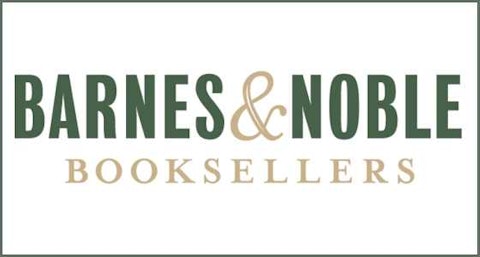Barnes & Noble, Inc. (NYSE:BKS) is the largest bookstore chain in the United States, with a total of over 1,300 bookstores in all 50 states as well as a substantial online presence. The consensus in the market has been negative for quite some time, despite the company’s best efforts to adapt to the online bookstore and e-reader trends. As a result, shares have declined in the past couple of years, bottoming out at under $10 per share. Even the current share price of around $14 is a far cry from the above-$40 levels the stock was at just a few years ago.
However, I’m not so sure that the best days are behind Barnes and Noble. If this company was such a loser, why would Microsoft Corporation (NASDAQ:MSFT) sink $300 million into Barnes and Noble’s digital book ventures? If the physical bookstores are a dying business, why were same-store sales actually up in 2012? While the profitability and viability of this company still remains to be seen, I have a feeling that those investors willing to take a chance on this one will be glad they did.

The closest competitor in terms of a physical bookstore chain is Books-A-Million, Inc. (NASDAQ:BAMM) with their 257 stores. While the company has established an internet presence, they did not adapt to the e-reader trend, nor are their stores as appealing as Barnes and Noble’s. As a result, their revenues have declined every year for the past five years, while Barnes and Noble’s have risen.

Two areas where Barnes and Noble has a competitive advantage (and room for growth) are its B&N College subsidiary, which accounts for 24% of the company’s revenues, and the NOOK division (13%).
The college division operates almost 700 college bookstores, and is growing quickly. In fact, while I was in college, our bookstore became a B&N College store, which I didn’t mind at all since it brought its Starbucks café with it. With approximately 4,500 colleges and universities in the United States, there is tremendous growth potential here. According to the company’s most recent annual report, “College is well positioned to be a growth business for us as colleges and universities increasingly outsource their distribution of campus materials.” Even if physical book sales die out, college students will continue to go to the bookstores for textbook rentals (a very high-margin business) and for non-book items such as college apparel.
As far as the NOOK division goes, there have been some interesting developments lately. Back in October, Microsoft and Barnes and Noble announced that their joint venture would be called NOOK Media LLC, which will remain a subsidiary of Barnes and Noble. Microsoft has a 17.6% stake in the business in exchange for its $300 million investment. (Note: this fact alone implies that the new venture is valued at $1.7 billion, which is over twice the current market cap of B&N.) The goal of Microsoft getting involved is to bring one of the world’s largest digital libraries to their devices via a NOOK reading app specifically for Windows 8.
So, will this venture be successful? Only time will tell. The NOOK accounts for approximately 25% of the e-book market share, with most of the rest belonging to Amazon’s Kindle.
In all fairness, I cannot in good conscience recommend that people invest money in Barnes and Noble that they can’t afford to lose. While I firmly believe that the potential rewards far outweigh the risk, especially if the NOOK begins to gain ground now that Microsoft is putting its might behind the device’s success, this stock is still a speculation play at this point.
Barnes and Noble had negative earnings for the past two years, and this is projected to continue until 2015 at least. With the company set to report earnings on Feb. 19, any indication from management of an expected return to profitability would be very welcome news. I’m not saying you should dive right in, but this company is cheap enough and has enough that could go well that it is worth keeping an eye on.
The article With The Backing Of Microsoft, Is Now The Time To Buy This Company? originally appeared on Fool.com and is written by Matthew Frankel.
Copyright © 1995 – 2013 The Motley Fool, LLC. All rights reserved. The Motley Fool has a disclosure policy.





